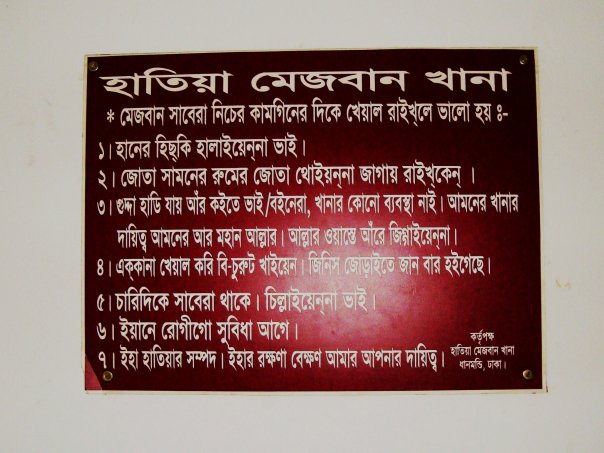 |
| Bandar Abbas, Iran (photo:wikipedia) |
Does Osama like to swim? Yes he does. If it was more wading and paddling or arms stretched to the front parting the water like morning curtains I can’t recall, but he certainly had no fear of water. There was no hesitation there: that is true, for I swam alongside him some years back, in 1997 by the settled calendar of the west, to be exact, to be precise, in the mountainous wilds of southern Iran
The water was mineral stained, the blue at its least a mix of cobalt glass, peacock-chest and Swedish-eye. It was other-worldly, a blue that must’ve shamed the sky even in its brightest effort, such that the regular concealment of night would come as an entirely welcome cloak to its failure. The water was warm, Earth-baked and a suitable adversary for the cooling evening air, when we arrived in that furrow of a gully in those rocky and harsh mountainsides.
Marco Polo had been there, so it is said, to the place called Geno outside the Persian Gulf port of Bandar Abbas China
 |
| Fishing the Persian Gulf (photo courtesy Iran) |
To be sure, it wasn’t at all to be considered in Iran
1997 by the settled calendar of the west, to be precise, to be exact: it was the days before Bin Laden’s infamy, and this Osama was not him, to be sure, but a young Iranian guy who’d met my school friend Lachlan and I by happenstance on a Bandar Abbas street on our way travelling through Iran. It was the first time I’d heard the name, and I liked it: O-sa-ma. It’s quite pleasant really; in those days when there was no connotation to it, and even now it can hardly be said to be a name of any less fortune than ‘George’, with apologies going to Mr. Harrison, Mr. Washington, Mr. Clooney, Mr. Costanza, Mr. Jetson and the others: sadly, your name has been cooked.
Bandar Abbas has a Portuguese history, with burqa-clad women sporting red or black masks across their noses and around their eyes; a masquerade relic of Portuguese fashion from centuries gone that went native along the Persian Gulf coastline before the colonisers left in their ships. The odd thing was that with the additional facial covering uncustomary in the rest of Iran the local women’s ankles were bare, less covered than in the rest of Iran
 |
| Persian Gulf fishing trawler (photo courtesy Iran) |
Bandar Abbas has an African history: the locals there called Bandaris are of mixed African and Iranian heritage, the complexion darker and culture distinct. In Bangladesh
Bandar Abbas is a Russian story, so it was said: such that in the days when the Soviet Union opened and the Russians first ventured beyond they would sometimes stop there on the way to or from the electronics haven of Dubai Lachlan and I, for perhaps half an hour in Bandar Abbas.
For two months or more we’d been in Iran , and our Farsi lessons in Sydney Iran
When we’d been wearing local clothes, and with new beards in place (mine rather silly-looking), we could perhaps for a brief moment, with singular short questions and monosyllabic answers, pass as locals. And even my blue eyes were not totally inexplicable, for some Kurds share that blue. We’d try our best to arrive at a price, and then enjoy the hotel manager’s surprise as we handed over Australian passports.
But in Bandar Abbas it was assumed we were Russians, so we were, we were! The little stories, the little lies at the hotel reception: our Farsi was imperfect on account of our Russian-ness and we were engineering students studying in Tehran who needed a good rate since the Russian rouble hardly went far, did it? Why engineering? I don’t know, but we were not like their other guests, the moneyed Muscovites wanting to buy a new TV set and a video recorder in Dubai
 |
| Lady with Bandari mask (photo courtesy Iran) |
They knew it was not so, those reception people, of course, of course; but they enjoyed the little performance, especially hearing us speak Farsi, in much the same way Bangladeshis now take muse from my inventive, original Bangla, if it’s to be described politely, which is what the Iranians would do.
‘So where are you really from?’ the reception people asked at the conclusion of the initial exchange. ‘Okay, Australia
At dinner, a few hours, we got to know the hotel staff properly; for the hotel was hardly bustling and we were at least interesting guests. We relived the Iranian tour completed and re-listed the route ahead.
Yes it was then: on the evening of slight Russian-ness before the Kurdish lunch in the relic of the Portuguese fort on the Island of Hormuz
 |
| The Portuguese Fort on the Island of Hormuz, Iran (photo: wikipedia) |
More adventure can be had searching for massive beasts or dealing with a non-English speaking travel agent or even just getting to work.
This article also published by Daily Star, here: Swimming with Osama





